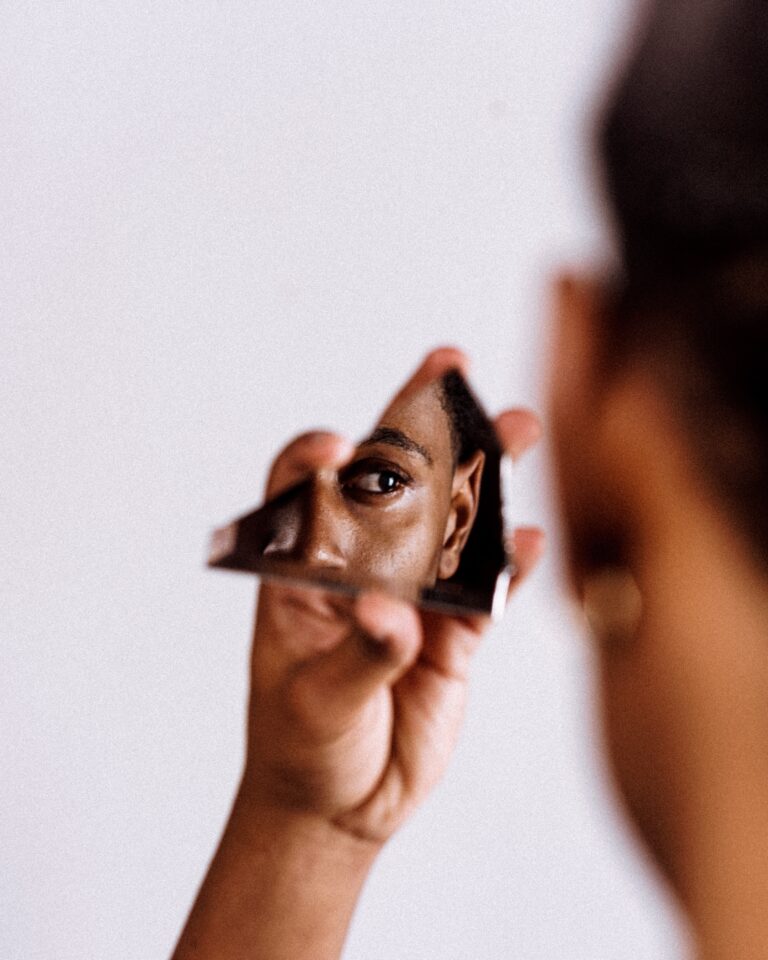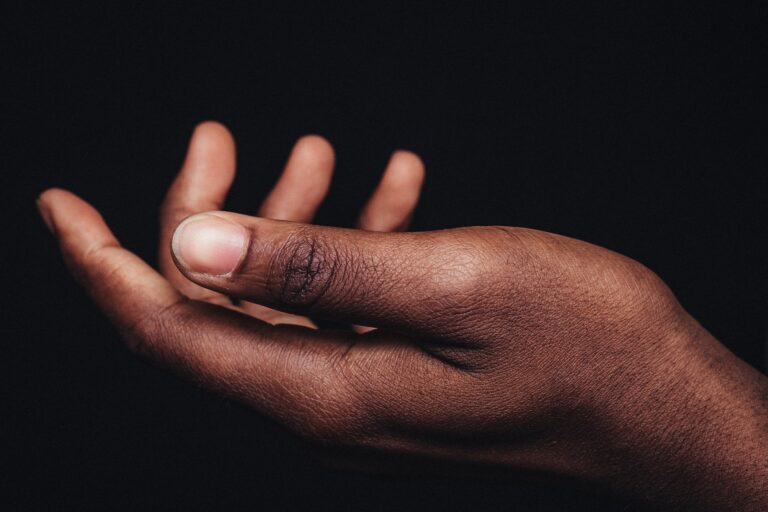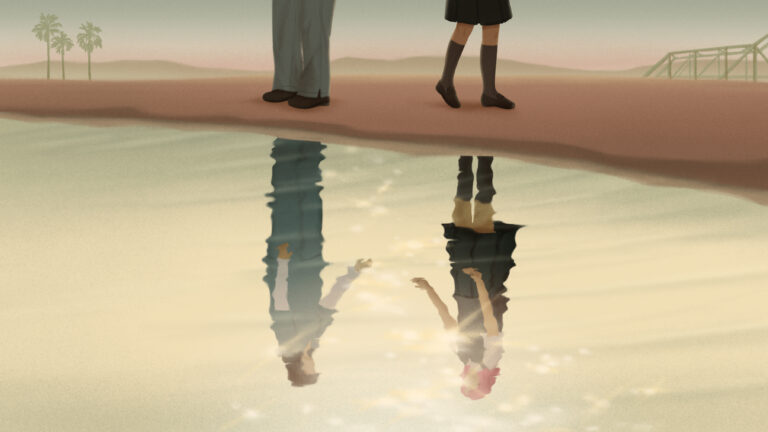The Question “Who Am I,” and Movies We Love
So many of us have been getting through this year by watching movies at home by ourselves, or with friends on Zoom, inventing new ways to grieve and to hope, to keep ourselves laughing, all through the simple act of watching stories unfold on our screens. Movies have the power to unearth the many layers of our identities; to help us answer the question: Who am I? And that is what we trace, by way of a few beloved movies including The Color Purple, The Fly, and Blockers, in this episode.
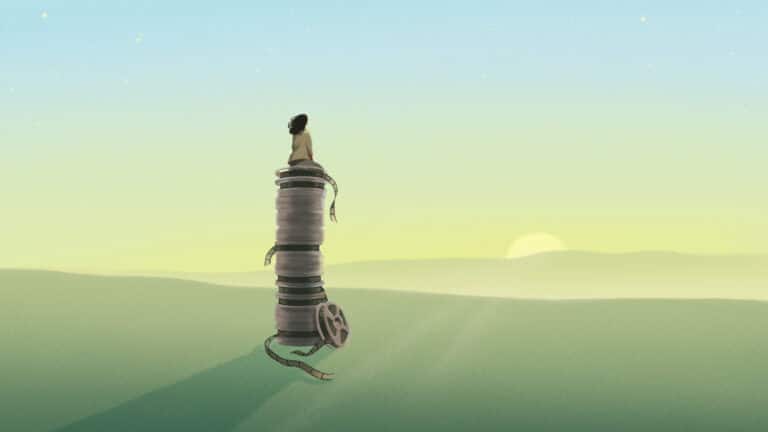
Image by Grace J. Kim, © All Rights Reserved.
Guests
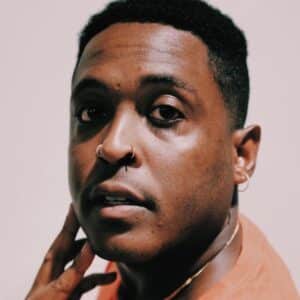
Danez Smith is a Black, queer, HIV-positive writer and performer from St. Paul, Minnesota. They are the author of Homie and Don’t Call Us Dead, which was a finalist for the National Book Award.
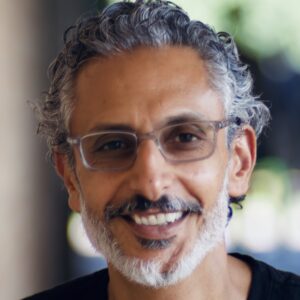
Tony Banout is the Senior Vice President of Interfaith Youth Core. He holds a PhD from the University of Chicago, where he studied at the Divinity School and was a Martin Marty Center and Provost fellow.
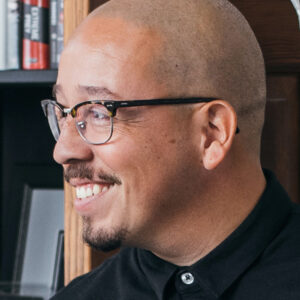
Shea Serrano is an author, journalist, and former teacher whose work has been featured in The Ringer and Grantland. He’s the author of The Rap Year Book, Basketball (and Other Things) and Movies (and Other Things).
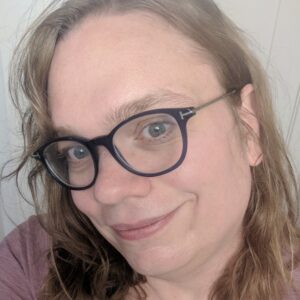
Emily VanDerWerff is the critic-at-large for Vox. Her work has also appeared in the Los Angeles Times, Grantland, and The Baffler. She is the co-creator of the DiscoverPods-nominated fiction podcast Arden and the co-author of the book Monsters of the Week: The Complete Critical Companion to The X-Files.
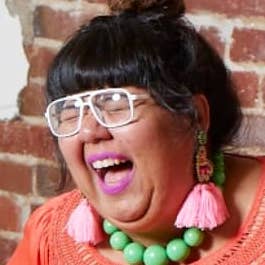
Virgie Tovar is an author, activist, and one of the nation's leading experts and lecturers on weight-based discrimination and body image. She is the author of You Have the Right to Remain Fat and The Self-Love Revolution, and hosts the podcast Rebel Eaters Club.
Transcript
Krista Tippett, host: So many of us have been getting through this pandemic by watching movies at home by ourselves or with friends on Zoom, inventing new ways to grieve and to hope, to keep ourselves laughing, all through the simple act of watching stories unfold on our screens. Movies have the power to help us get closer to ourselves, to unearth the many layers of our identities, to answer the question, Who am I? That question is at the heart of the third and final season of our delightful On Being Studios podcast, This Movie Changed Me, and we’ll get a taste of that this hour.
I’m Krista Tippett, and this is On Being. This Movie Changed Me is hosted by our very own movie-loving executive producer, Lily Percy. And she will be our guide.
[excerpt: The Color Purple]
Lily Percy: When Roger Ebert wrote his review in 1985 of The Color Purple, he started it by saying: “There is a moment in Steven Spielberg’s The Color Purple when a woman named Celie smiles and smiles and smiles. That was the moment when I knew this movie was going to be as good as it seemed, was going to keep the promise it made by daring to tell Celie’s story. It is not a story that would seem easily suited to the movies.”
Ebert was so right. When you read Alice Walker’s book, it’s hard to imagine that it could ever really thoughtfully and truly be portrayed by a movie, and yet that’s what Spielberg did, in bringing that story to life — the story of Celie, a Black woman living in the early 1900s in the Jim Crow South, who lived her life fully and imperfectly, in spite of the violence, hatred, and racism that surrounded her.
The Color Purple, both the movie and the book, has inspired poet Danez Smith’s work. Their books of poetry are powerful and speak of messy, complicated truths, the same way that the story in The Color Purple does. And that’s one of the things that Danez was really struck by when they watched the movie — it was the first time that they were watching a Black woman from beginning to end, that they were seeing this Black woman’s life — their whole life — on screen.
[music: “Nettie Teaches Celie” by Quincy Jones]
I want you to travel back in time with me for a second. I want you to close your eyes, and I want you to think about the first time that you saw The Color Purple — who you were with, how old you were, how it made you feel — and I’m gonna look at the clock for ten seconds, and I’ll chime back in when the ten seconds are up.
So tell me what memories came up for you.
Danez Smith: Oh, I just thought about being in my mom’s room, where I watched so many movies when I was a kid. Luckily, my mom was a single mom, so we had like a one-on-one relationship, and I was an only child. She really didn’t like kids’ movies, so I watched all her favorite movies with her, stuff I was probably a little bit too young for, at an early age. [laughs] I didn’t even know how old I was, because it feels like I’ve been watching The Color Purple my whole life. That’s one of my mom’s favorite movies, and it’s my favorite movie. And I actually just watched it with her again, for this, this weekend.
Percy: Oh, my God! Really? That’s so cool!
Smith: [laughs] I told her, I was like, “I have to watch The Color Purple for this interview. Do you want to watch it with me?” And she said, “Yeah, come over.” And so we just watched The Color Purple.
[music: “Nettie Teaches Celie” by Quincy Jones]
Percy: I remember in an interview, you talked about how you had always, like you said, grown up with this movie, and you can’t remember, really, a time where it wasn’t around, but that the book really brought this whole other layer to understanding the characters in the movie. When did you read the book?
Smith: When — I was probably a teenager, probably 14, 15, I want to say. And I had never thought to pick up the book, because I knew the movie so well, and the book was just tucked in a little shelf we had downstairs that kind of was for forgotten books in the house. My mom was an avid reader.
And one day, I picked it up and just thought I was gonna see basically what I saw in the film, and I was amazed at how different it was — how queer it was, how rich it was; the form of the letters that you lose in the movie a little bit. And it was so interesting to see — I guess, for me, I think that’s the first time maybe Spielberg’s hand was illuminated a little bit in the movie, because it feels like such a Black classic, to me. And it is. I think it is a Black film, at the end of the day.
[excerpt: The Color Purple]
Percy: Tell me a little bit about what Celie means to you and why you love her character so much.
Smith: I think Celie reminds me of so many women in my family who found each other and who maybe found — and hopefully, and probably later — I think that’s the thing about Celie, is that her freedom comes late. And I’ve seen that with so many women in my family, where they find themselves after living under and for these men for so long, with these multiplying and eighty-eleven kids running around them.
I just flat-out see my grandmother and people who carved out tenderness while living in these complicated homes. Celie was always just so beautiful to me. I was just saying that to my mom. I was like, oh, it’s weird that they try to cast Celie as the ugly girl in this whole film, because I love Whoopi Goldberg’s face in that movie. Oh!
Percy: Yes! Exactly. She’s played by Whoopi Goldberg, and she’s so beautiful. And especially when she smiles, it lights up the whole screen. I don’t understand it.
Smith: And I think I’m always gonna cheer for the person who had to learn how to smile. And I’m gonna cheer for her smile all the way through. And that’s why I cry every time in that film.
Percy: It’s so powerful.
Smith: And I think that because Celie maybe, for me, was the first type of story where you get to see a character all the way through, where you get to love somebody’s whole life — I think that’s why. And I think I love those type of stories. Even when I’m going to my grandparents’ and my uncle’s and stuff like that, the way they tell their stories, even though I wasn’t there, I get to love their whole life a little bit.
And I love that type — I think that’s what I love, is I feel like The Color Purple, for me, maybe captures stories that have existed in my family for centuries. And I get that glimpse into the lives of people I’ve loved that I just wasn’t there to get to imagine or take part in.
[excerpt: The Color Purple]
Smith: That is the sort of blues note of The Color Purple, is that everything is — the good is tinged with the sad of it. And the sad always finds its way to jubilee or to some type of joy, some type of release, some type of desire. I think the characters are always or never in crisis; [laughs] they sway in and out of it, right? And we see the long narrative. And of course, then, it makes the feelings messy. It makes the story complicated. It can never be clean as we want it to be. It’s still a messy truth.
Percy: You know, Danez, I feel like everything you just said encapsulates your writing, because when I read your poetry, I feel like that’s what you do. You tell the truth about sex, about longing, about intimacy, about pain, about racism. You just speak so many truths, in the way that you talked about the blues as it’s shown in the movie. Does that resonate at all with you? Because when I read your poetry, I feel the same way.
Smith: Yeah, I think part of the prevailing thought in my poems is, everything is gonna be true at once. [laughs]
Percy: [laughs] Just like life — all the feelings, all the time.
Smith: Exactly. “How are you?” is a very complicated question, [laughs] because it’s just like, do you want to hear about the ways in which my life is blessed and about the ways my life is cursed and the ways my life is working itself out? And I think to invite that type of messiness to the poems, it’s not an invention of mine; I think that’s the work that I’ve found most compelling when I find it in other places.
And so I follow that note that people like Alice Walker have laid out, to embrace that high-low, everything feeling of life, and to let life exist best within that brilliant complication that lives somewhere between the joy and pain of a single experience, or of a multitude of experiences, and to let that life then be transformed by the lives around it.
That’s what Celie’s doing the whole time. Every woman she meets, every person she encounters transforms her life in so many ways, and I think that’s also what I’m trying to do in poems a little bit — in the poems, too, by trying to talk about that intimacy and how we get through this together and amongst each other. And also, I guess, how I approach being a reader, too, is that I’m trying to read and be transformed by the writers that I’m reading right now. And that also is a kind of intimacy and love and community-making, too, to say that, hey, this is whose work I move through that has refigured me and who I have to encounter my own work in new ways, too.
[music: “Maybe God Is Tryin’ to Tell You Somethin’” by Quincy Jones]
Tippett: I’m Krista Tippett, and this is On Being, today asking the question, Who am I?, through movies we love, guided by Lily Percy.
[music: Main Title from“The Fly” by Howard Shore]
Percy: You don’t really need to know much about David Cronenberg’s horror classic The Fly to understand the premise, but here’s what you do need to know. Jeff Goldblum plays Seth Brundle, this genius scientist who is inventing teleportation. But his plans go awry, when a little fly ends up in one of the machines, and that begins his slow and horrific transformation into a six-foot fly.
[excerpt: The Fly]
For Tony Banout, who works with Interfaith Youth Core, The Fly is an interpretation of the Icarus story, of the reality of what happens when someone flies too close to the sun and when you let your ego convince you that you know more than everyone else.
[excerpt: The Fly]
As we’re talking, there was a really great piece in the website Film School Rejects, and it’s one of their columnists, Brian Salisbury. He described Jeff Goldblum’s character, Seth Brundle, as “a character whose greatest flaw at the onset of the film is a relentless desire to advance the boundaries of knowledge. He proceeds with his teleportation experiment with the express intention of bettering humankind. But in the process, however, he is graphically robbed of every aspect of his own humanity.” And that’s so well-written and so astute, as to what happens to him. [laughs]
Banout: It really is. And so there’s this balance, I think, in social change work, by this fervor — and I certainly felt this more when I was in my late teens, early 20s, and just coming to activism — of wanting to change the world and being a little bit on fire about that.
Percy: And having the confidence that you could do it.
Banout: Having the confidence you could do it, maybe the ego to think you could do it. It’s actually a good thing to want to do; [laughs] I’m still involved in that.
Percy: It is. It is.
Banout: But the dangers of not paying attention to those you’re in relationship with, while you’re doing that, has the potential of robbing you of something very valuable.
Percy: Can you give me an example of those early days, when you felt that way, when you came into your activism and felt, “I am gonna change the world,” and realizing it wasn’t so simple?
Banout: After college I was living in D.C., and I was part of a broader social group that included Catholic Workers and other antiwar activists. And there was this just fervent conviction that the system was through-and-through rotten, and we needed a sense of — Christian anarchism was the solution, and we could do this. And if you weren’t down with us, you were just irrelevant. [laughs]
There’s actually a case to be made, but I think the way you make the case matters a lot. And the way in those years that I was writing off those who disagreed, I think was the problem. It wasn’t so much — and this is still true, the way now I think about civic life — it’s not so much one’s conviction as much as how one orients or relates to those of different conviction.
This is constantly the balance in a diverse democracy, broadly speaking; but just in our personal lives, holding true to what you think and what you believe and your conviction, and holding space to meet others where they are and experience them without needing to evaluate or judge or predetermine — I did not do that well. That was not part of the world I was in, and it was not part of my posture toward my work or what I thought it meant to be an activist.
Percy: So how did you come to learn that?
Banout: Assuming I have learned it [laughs] to any degree, I think maybe what middle age has given me, and for whatever deeper reflection is worth, the greater sensitivity to the connective tissue of the whole and how we are held together, both inextricably and inexplicably — protecting that has taken more of a priority, for me, than pushing my particular position or understanding of the truth. So I hope that’s made me a little bit softer and more understanding and more easy to get along with and present to people.
Percy: I feel like you’ve gotten to a place where, had Brundle not become a fly, [laughs] he may have gotten to, in his best version of himself.
Banout: [laughs] So the way that I read it is that this is the dystopic possibility in this wildly dramatized, sci-fi, gross way. So what the film does for me is push those questions and themes by framing them in a “here’s how it goes wildly wrong” scenario. [laughs]
Percy: This could happen to all of us.
[music: “Baboon Teleportation” by Howard Shore]
Tippett: You can hear the full episodes of all of these conversations in the On Being Studios’ podcast, This Movie Changed Me. Subscribe wherever podcasts are found, and find four new episodes there right now.
Coming up: the movies Real Women Have Curves, Blockers, and Selena.
I’m Krista Tippett. On Being continues in a moment.
[music: “The Phone Call” by Howard Shore]
I’m Krista Tippett, and this is On Being. Today, a taste of the new and delightful third season of our On Being Studios podcast This Movie Changed Me, hosted by Lily Percy.
[music: “Bidi Bidi Bom Bom” by Selena]
Percy: The movie Selena tells the story of the iconic Tejano music singer, played by Jennifer Lopez, but it also tells the story of Selena’s father, Abraham, played by Edward James Olmos, and the struggles he faced as a Mexican-American living and working as a musician in a segregated United States. His experiences influence the way that he helps his daughter to shape her career.
[excerpt: Selena]
Shea Serrano is a writer, and he’s also Mexican-American from Texas, just like Selena. Shea grew up never dreaming that being a writer was a possibility for him. He was working-class. And for him, seeing Selena hold all of these identities — singer, fashion designer, businesswoman — it meant that he could be more than just what he knew in his own family and community; that he could dream really big.
So talking about that scene in the car between Selena and her brother and her dad, in your book Movies (And Other Things) you tell this really wonderful story that I feel like illustrates so many of the things that they’re talking about in that scene. It’s the story of you working at — is it Cici’s Pizza?
Serrano: [laughs] Oh, yeah, Cici’s Pizza, yeah.
Percy: Is that how you say it? I’d love to read a part of it, if you don’t mind, just because it’s so well-written. And I’d love to just hear you talk about it.
Serrano: All right. Go nuts.
Percy: So you were talking about working in this pizza place, and you were there with a couple of other guys who were also Mexican-American — and also Mexican immigrants, so it was a different scenario than one you had been in. And then you say, “I remember telling them that I was in school, just as a general piece of chitchat one day. And I remember them making fun of me, hand to God, for like a week straight about it. They’d say things about how I wasn’t a real Mexican, because I’d gone to college, and they’d say things about how I thought I was white, because I’d gone to college. Just a bunch of dumb shit like that. And, I mean, I wish I could tell you that I was smart enough at the time, to be able to explain to them how backward it was for them to think that only white people went to college, and that the heat from the pizza ovens bonded us in unexpected and very meaningful ways, and that they both ended up enrolling at the school where I was enrolled, and we all graduated together and advanced our family names. But that’s not how that particular situation played out.” [laughs]
Tell me a little bit about that experience and how you connect it to Selena.
Serrano: Well, so the scene we’re talking about is the thing about your having to balance basically two identities. As you mentioned, this was my second or third year in college, something like that; just trying to make my little minimum wage money so I could spend it on whatever.
And I met those guys — we were all working, making the pizzas, throwing them in the oven together, a couple of Mexican dudes, and I thought we were gonna be buddies. I was living — this was in Huntsville, Texas. The school up there didn’t have a very big Mexican population. I was excited that — I was like, oh, I remember these faces. This feels a little bit like San Antonio. And then they started laying into me about being a college boy.
And I remember having that exact same conversation before I even left for college. My friends, people I had grown up with, were like, “Oh, you’re abandoning the neighborhood” or whatever. “You should be working down the street, not going to college” — this whole thing. So that just always stuck with me.
And then, as you mentioned, it didn’t work out great for me. I ended up being the worst of the group, because what ended up happening was, one of the guys there, his last name was very similar to my name, and they mixed up our paychecks one day, the payroll did. And he was working full-time, and I was doing part-time college hours, ten hours, five hours a week or whatever. And I got his check, and it was for $480-something, 500 bucks or whatever, and I just kept it. [laughs] I just cashed the check — it had my name on it. And I quit the job, and I left, and that was it.
And I can remember thinking, I wonder if they thought this was a cool “Mexican” thing to do. Did they approve of that? It was all backwards. It was all turned around. It was all really dumb, but that’s just the sort of stuff that happens in your brain.
Percy: How did you come to make peace with that, though — the idea that you could be educated and still be Mexican and still be true to your family, your community?
Serrano: I think that’s the very first time anybody has ever asked me that question. And I don’t know that I have a very good answer for it, because that’s still very much a thing. That’s a thing that I think about a lot; that’s a myth that is still out there. I do a lot of speaking engagements at different schools, and that’s always the primary point we’re trying to get across to these kids, is, being Mexican doesn’t mean not being able to do certain things. It doesn’t mean anything, except that you’re Mexican.
So it’s still something I think a lot about. I live in a neighborhood now, there’s our little cul-de-sac — there’s not another Mexican family in there; that part of town, there’s not a lot of Mexicans on that side of town. You feel it in certain spaces, in certain rooms. So I don’t know how to deprogram my own brain, let alone somebody else’s, from feeling that way.
Percy: I relate to that a lot. I think, when you are different from either the community that you come from or even just have different jobs than your family members and different experiences, it’s so hard to reconcile your desire for something different from what they experienced.
Serrano: Yeah, because you have enough conversations with your people — my dad, for example, he drives a bus for the city. He’s been there for 33 years, going on 34 years. He’s getting up every morning at 3:00-something, riding to work, and then driving the bus for ten hours and then going home. My mom worked at a corner store for 29 years, just at a Stop-and-Go or whatever. My uncle does landscape and irrigation. These are hardworking jobs.
And I sit down at a table with them, and they’re talking about work, and I’m like, “Oh, I sat in my office and played on the internet for six hours. And I went to go watch a movie.” And that’s what my job looks like, and it looks so much different than theirs. And there’s always — I don’t know if I’m putting this tension in there myself or what, but when you’re in a space where people are not doing the same sort of thing that you’re doing, it does sort of tint the relationships a bit.
Percy: It makes it so complicated because it can be seen as rejection of them and of who they are and what they do, unintentionally.
Serrano: They can be feeling that way, I can be feeling that way; we can all be feeling a certain kind of way and not being able to explain it exactly, but we know that it’s there.
[music: “Como la Flor” by Selena]
Tippett: I’m Krista Tippett, and this is On Being. Today asking the question, Who am I?, through movies we love, guided by Lily Percy.
[music: “Let’s Make a Change” by In Betwin]
Percy: Blockers is a sex comedy, but it’s a sex comedy directed by a woman, Kay Cannon, so it has depth and layers that you don’t normally expect from this movie genre. It’s one of the most intimate, vulnerable, and aspirational movies about sexuality and gender that I’ve ever seen. And it’s also really funny.
The movie tells the story of three teenage girls who want to lose their virginity on their prom night. But it’s also about their parents mourning the loss of their kids, watching them grow up and learning to let them go. Because Blockers is a comedy, you wouldn’t expect to watch it and have a profoundly personal and revelatory experience. But that’s exactly what happened to Emily VanDerWerff. She’s a writer and the critic at large for Vox — and when she saw Blockers for the first time, she realized that the movie was showing her something that she couldn’t have ever even imagined: a life for herself as a trans woman.
Percy: So I’d love for you to just close your eyes for a couple of seconds, and I’m gonna take you back in time to the first time that you saw that movie. So just close your eyes and think about how old you were — this was only two years ago, so hopefully this is not a difficult exercise — [laughs] how old you were, where you were, and how it made you feel. And then I’ll just chime in when those ten seconds are up.
So tell me what memories came for you.
Emily VanDerWerff: Well, first of all, as I am a lady, I will say I was in my 30s when I saw this film.
Percy: You and I are the same age, so I’m right there with you. Go ahead. [laughs]
VanDerWerff: I went and saw this movie at a press screening, and I think it was March of 2018. I came out in late March of 2018, and it was because of a barrage of different things from different quarters that hit me at exactly the same time. And the first one of those things was Kay Cannon’s 2018 film, Blockers. Like, I was expecting to enjoy it, because I had heard from people that it was quite funny and quite good. And my wife was there with me, and we laughed a lot.
[excerpt: Blockers]
Percy: I don’t know if this is a stretch at all, but as you were talking I thought — one of my favorite characters in the movie is Hunter, the dad, played by Ike Barinholtz, who’s the father of Sam, who’s a lesbian in the movie. And I can picture Hunter — let’s say that Sam’s character was trans. I could picture Hunter saying the exact same things that he says about her as a lesbian. He’s just — on the surface he’s so obnoxious and ridiculous and this caricature of a womanizer, but then, throughout the movie, you realize he is the most, not only perceptive one out of the three parents, but the most vulnerable and kind to her. Even though his daughter isn’t publicly out as a lesbian, he’s always known and really wants to protect her right to decide when other people know and her right to have that experience in a beautiful way. And it’s one of the most tender things about the movie.
[excerpt: Blockers]
I’m just curious what the character of Sam, watching that and even watching his interaction with her, as her dad, meant for you.
VanDerWerff: I don’t have a relationship with my father anymore. I don’t want to say it’s over forever; it could change. He could change. But he has refused to acknowledge me as I am. And I feel, as far as bars go, “Call me Emily, use she/her pronouns” is about as low as you can get. Everybody else in my life who’s not my mother or my father does that. The people who don’t, I block on Twitter.
I can’t even think about that. It’s not that it’s foreign to me; I can imagine a girl whose single dad said, “You’re trans? Cool. We’re gonna figure that out.” I have written that girl into some of my work. I’ve written that girl into a lot of my work. I can’t imagine it for myself; it feels like something too hot to touch. I have recently been exploring the idea of telling a story about myself if I had gone through the right puberty — if I was still trans, but I had started taking pills. And I just couldn’t do it. I couldn’t look at it. It was too painful, but it was also too unbelievable. The women I know who transition in adulthood are women who have intense trauma, often around parental relationships, because their parents often stand in the way of them.
I can’t look at that idea, the idea you just presented. I can’t look at it, even when I write it. I desperately, desperately wish it was just the norm. There’s such a pathology. There’s such an idea of — honestly, I’m thinking about this in terms of the Leslie Mann character. You have these ideas about what your child is going to be. You have these ideas about what your child is going to do. You have these fantasies of the person your child is going to become. One of my best friends has a five-year-old daughter, and she is watching as her daughter very quickly becomes a different person from the one that she thought she had. And she’s cool with that. She’s a great mom. She’s rolling with it. But what a hard thing to give up on. What a hard thing to give up on, this idea you had of who your child might’ve been.
I don’t think it’s wrong to mourn that. I don’t think it’s wrong to grieve that. I think it is wrong to get stuck there.
Percy: Exactly.
VanDerWerff: I think it is wrong to insist that your version of reality is their version of reality, and I think that’s where these relationships break down. So in conclusion, I wish that my dad had been [laughs] Ike Barinholtz from the movie Blockers.
Percy: One of the things that I love about watching movies over and over again, when they’re good, is I always feel like the more I watch them, the more I learn and grow. And I kind of grow together, alongside the movie. I’m just curious, for you, because of the fact that you saw this before you came out as a trans woman, publicly, and presumably you’ve watched it since, how you’ve grown together — how you and Blockers have continued to grow together.
VanDerWerff: I think I’ve only seen this movie one time since.
Percy: Oh, wow.
VanDerWerff: I saw it on cable at some point. I saw part of it. I didn’t see all of it; I saw part of it on cable. And I re-watched it — I was like, this is still a very charming movie. It didn’t hit me with the same weight, because I was out. I was out. I was already on hormones. I was like, this is fun. This is a fun movie. And that was all it was.
And I think the movies that change us, the TV shows that change us, the things we consume that make us the people we are — we often leave them behind. Blockers was immensely important to me when I saw it that night in March 2018 and almost started crying at this sex comedy everybody else was laughing at, because I saw so desperately the life I should have led. But now I’m leading that life. I don’t need to be reminded that it could have existed, because I’m there.
[music: “Good as Hell” by Lizzo]
Tippett: I’m Krista Tippett, and this is On Being, today asking the question, Who am I?, through movies we love, guided by Lily Percy.
[music: “Aqui No Sera” by Ozomatli]
Percy: Real Women Have Curves tells the story of Ana, played by American Ferrera in her first starring role, and Ana’s mother Carmen, played by Lupe Onteveiros. Ana is Mexican-American and living in an immigrant household while also navigating a very American high school experience.
The relationship between Ana and her mother is a tense one. We see them fight, we see them struggle, but all throughout we also see this raging love that is at the center of that relationship. And that’s one of the reasons it’s so hard to watch the two of them on screen — you know that they want to communicate with each other, you know that they want the best for each other, but they are missing each other completely.
[excerpt: Real Women Have Curves]
The relationship between Ana and Carmen is one that writer and activist Virgie Tovar is very familiar with. By watching them together on screen, Virgie came to fully understand the generational grief that the women in her family held and passed down, and how it shaped the complexity of their lives.
I’m just curious, when you think about the trajectory of your life alongside this movie, how the two of you — how you and Real Women Have Curves have grown together; what you’ve continued to learn as you’ve gotten older.
Virgie Tovar: Talking about relationship to mothers, one of the things that I really keep in mind is that the gender expression, the understandings of gender I have, are time-bound and place-bound too. She looks at my expression of gender, and she feels the same judgment that I might feel about hers. She feels like I’m confused and out of touch. I feel like she’s confused and out of touch.
My grandmother taught me this saying, which is, “The devil doesn’t know because he’s the devil; he knows because he’s old.” And it’s a Mexican saying.
Percy: I was gonna say, I’ve never heard that one. [laughs]
Tovar: And so she has wisdom. Even with the stuff that is so new that came out of the women’s rights movement, women’s liberation, second wave feminism — she doesn’t know that world, but she understands systems in a way that are only really intellectual for me, at this point, because those systems that she grew up with, they’re the same systems I inherited. And so she lived with that boot overtly on her throat. And for me, I had to read books to even see that boot.
But anyway, in terms of the trajectory and growing, I do feel like Ana could’ve been you or me. I think I see the complexity of all of it, where you, full-steam ahead, you jump in — she’s at Columbia, she’s doing her thing — and then you have this rude awakening that, as much as you don’t relate to maybe where you grew up, you have similar points of tension with the people who are now in your social circle and in your professional circle, whatever.
And then I think what’s hard is, there’s a lot of things that are hard about growing up in that trajectory, and one of the hardest things is how much freedom there is. “You can pick and choose. It’s like, you’ve got these two worlds. They’re both robust. They both have upsides, and they both have downsides, and you get the freedom to be like, “I choose this from here, and I choose this from here.” And then I think part of the maturity process is really carving out your own femininity, your own meaning-making. And I think one of the hardest things for me has been parsing out — and I could see Ana on this trajectory, too, where she comes to a point where she forgives her mother.
And honestly, it’s her leaving that gives her the space to be gracious. And so I think, similarly, as we mature and we grow, it’s really difficult to look back. When you get your sense of Latinidad from your family, and your family is toxic, and it’s abusive, it’s really difficult to go back, and you have to go back to the ground zero, the shambles. I think of the images coming to mind. It’s like that house that has fallen apart after an earthquake, and you’ve gotta go through, and you gotta get rid of the asbestos. Gotta put that over there. The wood chunks from my house…
Percy: [laughs] Pick through the rubble.
Tovar: …over there. And then this picture that means a lot to me, I’m keeping that. And then more asbestos, brick — I don’t know, whatever your house is made of — putting that in the box; gonna go away; putting that in the trash. And then that moment where you’re like, “Oh, that diary that I wrote when I was a kid. And oh, that meal, that dish that I remember.” And I think what’s hard is, it’s never not gonna be painful.
And I think that is truly the source of tension for people of color who are really walking between worlds and have one foot in one world, one foot in — because pretty much, if we’re that person, it’s because our family hurt us, most likely. It’s not just that the allure of white culture was just so irresistible. Normally, we’re going there because we feel really hurt by where we came from. And a lot of us dealt with that through achieving our fucking asses off, and that landed us in white world. And so our journey is really that.
One of the things that I grew up with all the time that my family taught me was, life is hard. Life is hard. Life is hard. And I was like, no, it’s not. You’re making it hard. All of them have to do with the choices that you’ve made. And that resentment and that rage. And then, at 38, just coming into the realization that I made totally different decisions than they did, and I am left with the reality that life is hard. There is no escaping.
And I think when you really talk about the difference between Mexican culture and white culture — and I think that, really, what Carmen was saying is, “Life is not fair. Life is brutal. Don’t even go out there, because the world is a terrifying place. You need to stay here and to the known quantity, because the world is scarier than you can even imagine.” And Ana’s like, “Nothing could be worse than being here with you” — which, girl, I can relate to that.
And then you go out into the world, but then you land in that awareness that Carmen has, and then what do you do with that knowledge? Are you gonna pass it on and create a toxic relationship with the people who you love, with your potential children, or not?
Percy: Yeah, God, that’s so true.
I was reflecting on just how important this movie was when it came out, and how it continues to be so important. It’s the first movie of its kind that was directed by a white Colombian woman, a Latin American cast, various countries represented. America Ferrera is Honduran; it launched her career. I think I underplay the impact that this movie had on me, watching it at the age that I watched it, and even today, the impact that it has on me. And I’m just really curious to know what your answer to this would be, which is, what do you think 38-year-old Ana would be up to? [laughs] What do you think she’s doing?
Tovar: Girl, 38-year-old Ana has been through therapy. She reads self-help books. She’s married to a white man but has feelings about it. She’s accepted that — I think she came to the moment where her ancestors were like, this is not a battle you’re gonna win, girl, and it’s OK. [laughs] And she’s like, all right, I’m just gonna let myself have this. I’m gonna stop dedicating my life to decolonizing everything, and I’m gonna dedicate it to the three things I actually feel like I can decolonize. And she is — I don’t know. Is she a badass entrepreneur? Probably. She’s definitely a disrupter, whatever she’s doing.
I feel like if I met Ana, Ana would be a friend. Ana would be somebody who, if she were in a room, I would spot her. And if she lived in San Francisco, we’d be members of the same Arts and Letters women’s organization or whatever. [laughs]
Percy: [laughs] I love it. I think we’ve given Patricia Cardoso, the director, plenty of fodder for a sequel. I’m just saying.
Tovar: I agree.
Percy: You wrote the script right there. America Ferrera. Why not?
Tovar: Ahh! We wrote the script. [laughs] Yes.
[music: “Aqui No Sera” by Ozomatli]
Tippett: Virgie Tovar, interviewed by Lily Percy. You also heard from Danez Smith, Tony Banout, Shea Serrano, and Emily VanDerWerff .
Listen to the full episodes with them and others at This Movie Changed Me, wherever podcasts are found. The full third and final season, which is now unfolding, also includes conversations about the movies Lady Bird, The Way We Were, and Love & Basketball.
The On Being Project is: Chris Heagle, Lily Percy, Laurén Drommerhausen, Erin Colasacco, Eddie Gonzalez, Lilian Vo, Lucas Johnson, Suzette Burley, Zack Rose, Colleen Scheck, Julie Siple, Gretchen Honnold, Jhaleh Akhavan, Pádraig Ó Tuama, Ben Katt, Gautam Srikishan, and Lillie Benowitz.
The On Being Project is located on Dakota land. Our lovely theme music is provided and composed by Zoë Keating. And the last voice that you hear singing at the end of our show is Cameron Kinghorn.
On Being is an independent, nonprofit production of The On Being Project. It is distributed to public radio stations by WNYC Studios. I created this show at American Public Media.
Our funding partners include:
The Fetzer Institute, helping to build the spiritual foundation for a loving world. Find them at fetzer.org.
Kalliopeia Foundation, dedicated to reconnecting ecology, culture, and spirituality; supporting organizations and initiatives that uphold a sacred relationship with life on Earth. Learn more at kalliopeia.org.
The Osprey Foundation, a catalyst for empowered, healthy, and fulfilled lives.
And the Lilly Endowment, an Indianapolis-based, private family foundation dedicated to its founders’ interests in religion, community development, and education.
Books & Music
Recommended Reading
The On Being Project is an affiliate partner of Bookshop.org and Amazon.com. Any earnings we receive through these affiliate partnerships go into directly supporting The On Being Project.





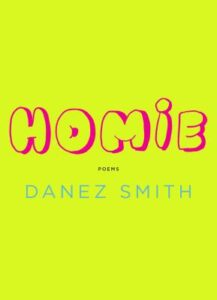
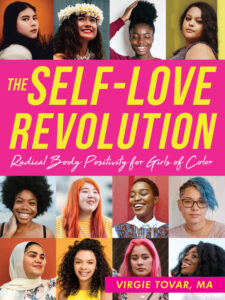
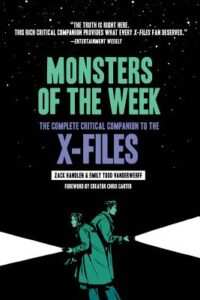
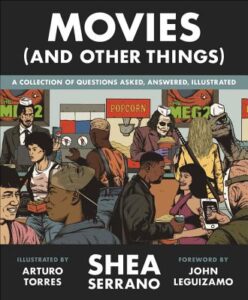

![Cover of Color Purple, The [2 CD Reissue]](https://m.media-amazon.com/images/I/515jX6jcXxL.jpg)

![Cover of The Last Concert [CD/DVD]](https://m.media-amazon.com/images/I/41nrHi-sJRL.jpg)
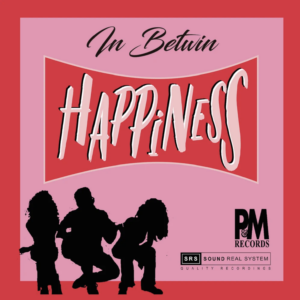
![Cover of Good as Hell [Explicit]](https://m.media-amazon.com/images/I/51rxVu0GjKL.jpg)

